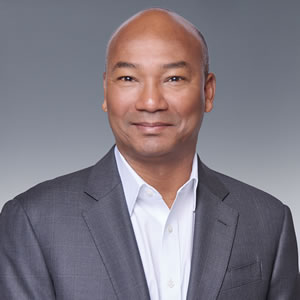David Windley Podcast Transcript
David Windley joins host Brian Thomas on The Digital Executive Podcast.
Brian Thomas: Welcome to Coruzant Technologies, home of The Digital Executive podcast. Do you work in emerging tech, working on something innovative? Maybe an entrepreneur? Apply to be a guest at www.coruzant.com/brand.
Welcome to The Digital Executive. Today’s guest is David Windley. David Windley is the CEO and Executive Chairman of HootRecruit, an AI powered talent sourcing platform that is transforming how recruiters find and engage the right candidates.
HootRecruit aims to fundamentally change the recruiting process by creating an AI agent for candidate sourcing. Focusing on enhancing human expertise rather than replacing it. Hoot Recruits proprietary full agentic AI platform can instantly parse job descriptions, discover qualified candidates from public profiles and provide detailed assessment scoring clients, leveraging the platform experience results like four times faster hiring.
And spend up to 95% less time on manual sourcing activities. Hoot Recruit was also recognized as Nashville Technology Council’s Tech Startup of the year in 2024. Well, good afternoon, David. Welcome to the show.
David Windley: Thank you for having me.
Brian Thomas: Absolutely my friend. I appreciate it. You’re in the Silicon Valley, Los Altos area.
I appreciate that. I’m in Kansas City, so we’re just two, two hours apart. Uh, and I do appreciate that every time a guest, uh, makes the time to schedule and, and get on the calendar. So thank you. And David, jumping into your first question, you’ve had a long career as a Chief Human Resource Officer, CHRO, at companies like Yahoo, Microsoft before launching HootRecruit.
What was the moment when you realized that the recruiting function itself needed reinventing? And how did your HR experience shape you to build a recruiting tech company?
David Windley: Great. Yeah. First, just to clarify, I was CHR at Yahoo. I I was an executive in HR at Microsoft. I did not have the very top CHRO job, but say the number two HR job there.
Um, as far as the question, um, you know, when did I see that, uh, that we need to, to disrupt, I guess? Um, recruiting is, uh, just over time as the AI technology has gotten better, um, I could see where v various aspects of the recruiting process could be. Sped up and also done with quality through AI technology.
And uh, so that’s when, uh, at the time I was at IQ Talent Partners, uh, a previous company of mine that, uh, we started using these technologies and then started building a platform to embed these technologies for my recruiters and sourcers. So. I would say it was around the 20 15, 20 16 timeframe where I really saw the, the future of technology, uh, impacting the recruiting process.
Brian Thomas: Thank you, and I appreciate your backstory. Um, obviously a lot of stories that come out of the podcasters, you saw some gaps or there was a problem that you wanted to solve, and in this case, the gap in the recruiting process and, and some of the platforms. And I’m glad that you came in and, uh. Took your experience and saw that gap and your knowledge and, and applied that towards, uh, fixing, uh, this, this whole process.
I think it’s important. So thank you. And David, who recruits new full Agentic AI platform enables instant job description parsing, realtime candidate discovery scoring and human in the loop refinement. How do you design the architecture such that the AI acts as a true agent, but still ensures recruiters remain in control of the decision making?
David Windley: Yeah, good point. I mean, there are a lot of startups in this space. Um, using AI in the recruiting process. We have purposefully built our platform, um, our process, if you will, uh, to make sure that the human in the loop is, uh, involved with key areas of judgment along the process. So not leaving it a hundred percent to the ai.
To execute, um, all the way. Uh, where we believe that AI is very good is in, you know, maybe, uh, looking through resumes at a much faster speed, um, than the, than humans can summarize, uh, the, the profiles, um, matching the profiles, the, you know, the tasks, uh, such as that. We asked the AI to do, you know, parsing the, um, job description as you described.
Um, doing a search across the internet for profiles that are matched to your search specifications. Uh, doing an assessment of those profiles against the search specification and providing a summary for the user. Uh, we leave it up to the user to make the ultimate judgment if this is a good candidate or not, for example, right?
So what we tried to do is create an architecture where the AI is utilized, where it can be very productive, um, um, but leave the, the critical judgment points, uh, with the human user in the loop.
Brian Thomas: Thank you. I appreciate that. I think that’s so important. You know, AI is out there everywhere now, probably in every, uh, recruiting platform now as you’d mentioned.
But your platform is deliberately working with that human in the loop. And I liked how you said AI is doing a lot of the heavy lifting, doing a lot of the searching and so forth, but at the end of the day, it’s that human who really reviews the data. That summary. Makes that critical judgment, uh, whether that data is, is accurate or, or it’s a candidate they need to follow up on.
So I really appreciate that. And David, who recruit claims clients can hire four times faster and spend 95% less time on manual sourcing. Considering that speed often sacrifices quality, how do you ensure that in accelerating sourcing you, you aren’t compromising? Can candidate fit, cultural alignment or some long-term retention?
David Windley: Yeah. Yeah, that’s a good question. It go, sort of goes back to the previous, uh, question or how we’ve designed it in, in other words, the productivity gains are in those areas where it just takes the human a long time, uh, to go through. And like I said, you know, you know, for example, without the AI searching capabilities, you know, a human would look through.
Various sources, let’s say LinkedIn or other places online, and look through profile after profile, after profile, right? Hundreds, you know, maybe even thousands for certain jobs, you know? But the reality is they probably don’t get to a thousand because it takes so long. So, they don’t even review all the potential profiles that could be a match, right?
It’s just too arduous of a task. So that’s where the productivity gains come from. And in fact, using AI. To make you more productive. Let’s say you have the same recruiter, right? That otherwise would’ve had to do that. The AI can do that in fractions of seconds, really? And, and, and, and deliver that to the, the recruiter.
So now the recruiter can spend more time on those qualitative areas of recruiting, right? Doing a more in-depth interview, uh, with people. Um, making that human judgment call whether this person is the right candidate or not. And so I think the, the, the great thing about this AI technology, and if you create the process for, with the recruiter, with the human in the loop, is you can get both.
You can get great productivity improvements across the total process while also enhancing the recruiter’s time and ability. To, you know, to do the qualitative things, so keeping the quality up so it’s not an either or, right? The fact that you have more productivity means you’re giving up quality. I think quite the contrary is that, you know, you take that same recruiter, you make them more productive so that they can spend more time, uh, to make sure there’s quality.
Brian Thomas: Thank you. I appreciate that. And you did kind of unpack that a little bit. The productivity gains, like maybe that 95% less time. Uh, on manual sourcing are in the areas of searching, matching, you know, going through that, uh, just a ton of data that AI does very well. And of course this allows recruiters doing that qualitative review, more time to spend with the candidates and interviews and that sort of thing.
And yeah. What I took away is it’s really a symbiotic relationship here between human and the machine, and I think that’s great. So thank you. And David, the last question of the day, you’ve also been an advocate from work, from anywhere measuring by outcomes rather than hours. How do you believe talent sourcing and recruiting technology can support a future of work that is more flexible, inclusive, and outcome focused?
What do you hope Hootrecruit will contribute to that in the future?
David Windley: Yeah, you know, I don’t know if they’re directly related, but I do think, um, you know, a lot of technology, uh, will allow people to be more productive. Um, ours included for recruiters. I, I think the main thing there is that depending on the type of work that people are doing.
Most of the knowledge work, um, you’re producing some sort of outcomes, right? And that is what we should be measuring versus time at a certain place, right? And if the type of role can be accomplished, um, anywhere, um, I think we should give people the flexibility to do that. Now I understand there are parts of our roles as knowledge workers that it is beneficial to be, uh, in the office, so to speak, or at some location collaborating with our, our fellow workers.
And so I think, you know, there’s a balance and I think that’s what’s happening now. Right? So, you know, post COVID there was, you work from, work away from the office all the time and there was the crowd that said we all had to come back. I think the reality is, and most people are settling into more of a hybrid nature, right?
There might be sometimes, or for key meetings, you know, we’re gonna have a design session meeting, we wanna be on the whiteboard, so to speak, going back and forth. Uh, and yes, you can do whiteboarding virtually. It’s not the same, right? Being in person. So there are certain aspects of roles, depending on the jobs that, that you wanna be together, but it’s not 40 hours a week.
Right. And so I do believe that, um, it behooves companies to be, uh, smart about their, um, flexible work arrangements. Um, because, you know, the, the knowledge worker, the valued knowledge worker will have options. And, and the market will ultimately dictate, um, you know, uh, the flow of talent. So, uh, that, that’s, that’s where I stand.
I think. Let’s be smart. Uh, I am personally an advocate for, you know, the certain types of roles and most knowledge worker roles that we should be flexible and allow people to do their job anywhere and measure them on their actual performance. Not on time that you see them.
Brian Thomas: That’s great. Thank you. And I appreciate that.
And I think, um, you know, the pandemic obviously that influenced a lot of this nowadays, this remote work, but the technology and the culture, uh, company culture is certainly allowing for more smart and flexible workplaces, right? So depending on that type of work, as you mentioned. What they’re doing, where they’re at, the type of role.
Um, at the end of the day, the outcome is the goal, not the eight hours or the 40 hour work week. And I think that’s so important. And it doesn’t really matter, you know, if it’s return to office or not. I mean, at the end of the day, you know, let’s get some, let’s build some strong engagement and excitement around the company, no matter where you’re at and what you’re doing.
So I like that. Uh, I like your insights. And David, it was certainly a pleasure having you on today and I look forward to speaking with you real soon.
David Windley: Great, thank you. I appreciate it.
Brian Thomas: Bye for now.
David Windley Podcast Transcript. Listen to the audio on the guest’s Podcast Page.











